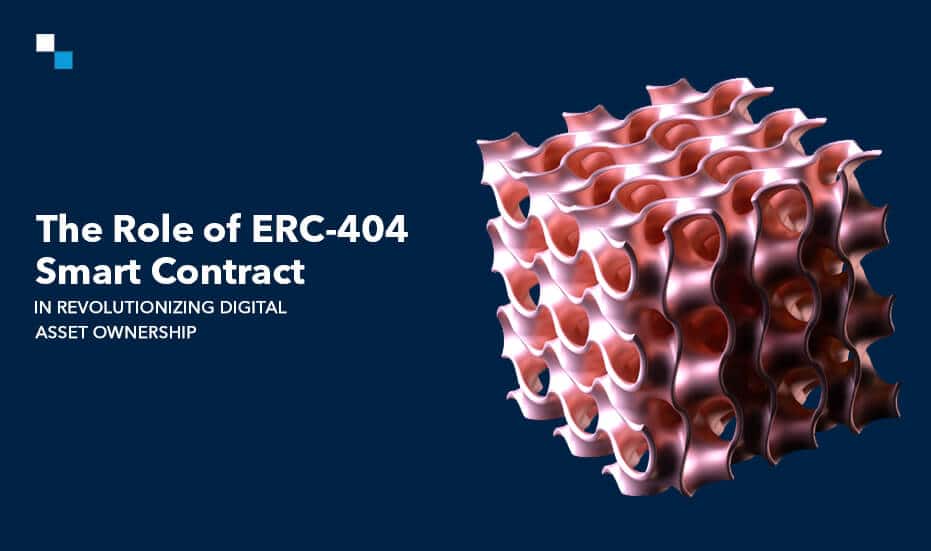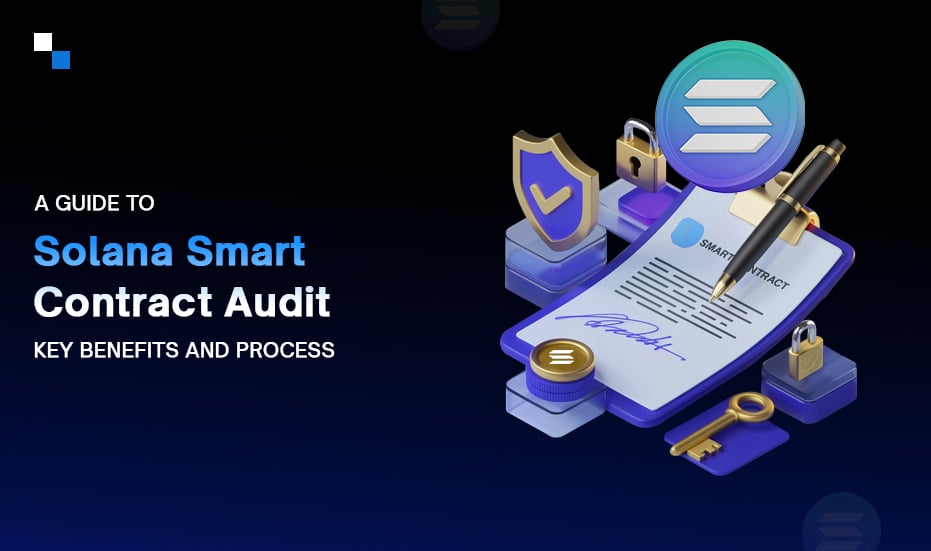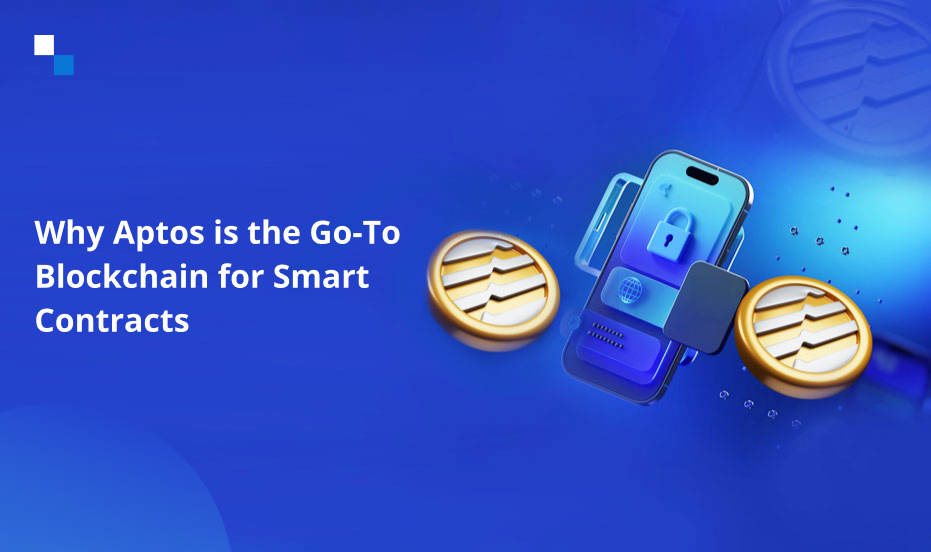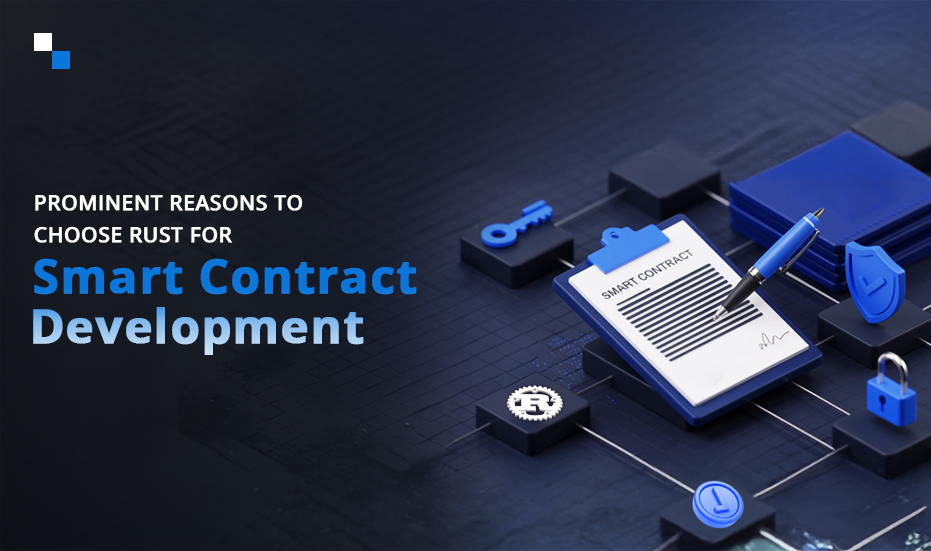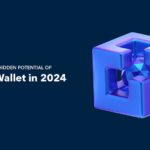
Why Every Business Must Consider Crypto Wallet Development in 2024?
March 1, 2024
Top 5 White Label Neo Banking Use Cases You Need to Know
March 1, 2024The token standard ERC-404 has gained immense traction among crypto investors even since its inception. The major cause fueling the ERC-404 hype stems from the feature of native fractionalization of NFTs. Developers have been reaching out to a smart contract development company to create a secure ERC-404 smart contract to enable fractional ownership of assets through blockchain technology.
In this blog, we will explore the concept of an ERC-404 smart contract and why one should invest in this innovative approach for asset fractionalization.
Understanding ERC-404 – ‘Semi-Fungible’ Ethereum Token Standard
Developed by a team of Pandora, ERC-404 is a new token standard that combines the features of both fungible (ERC-20) and non-fungible tokens (ERC-721), enabling the creation of a ‘semi-fungible’ token.
ERC-404: Working Mechanism
NFTs are unique and cannot be divided. It means owning a part of the NFT is not possible. ERC-404 introduces the concept of fractional ownership to solve this problem.
This is how ERC-404 works:
- First, a token is issued and linked to an NFT.
- When a user purchases a complete token, the linked NFT is immediately minted into the buyer’s wallet, proving the ownership of the asset.
- When a user sells a section of the token, the linked NFT is destroyed or burned, thus taking away the ownership right for the part of the token sold.
- When a user buys enough fractions to make a complete token, a new NFT is created that builds the ownership again.
The Role of ERC-404 Smart Contracts
The ERC-404 smart contract on Ethereum plays a crucial role in ensuring transparency, security, and automation in the fractionalization process.
ERC-404 smart contract helps streamline the NFT transactions. Smart contracts execute and enforce the rules of fractional ownership automatically when predefined conditions are met, which further eliminates the need for intermediaries, minimizes the associated costs, and reduces the risk of fraud.
This democratization of ownership offered by an ERC-404 smart contract opens up new avenues for investment and also encourages broader adoption of NFTs across various sectors that were previously inaccessible due to a lack of fractional ownership.
The Current Scenario
The soared to $250 million (as per the latest CoinGecko data), bringing a spark of positive sentiment within the Ethereum community. The data shows Pandora is leading the way, emerging as the biggest ERC 404 token. 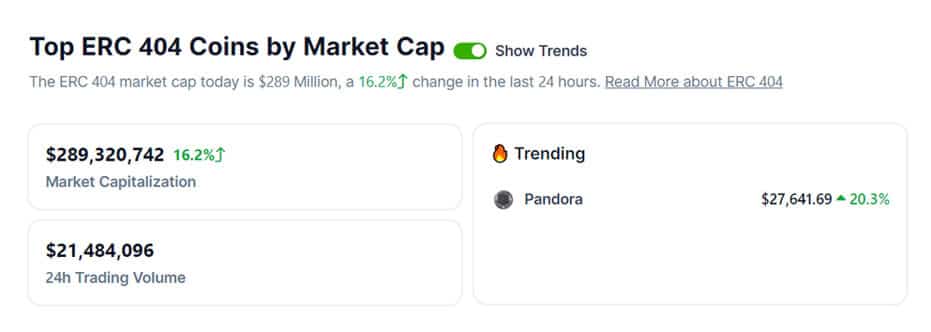
Source – CoinGecko. Date: 28 Feb 2024
Pandora’s first ERC-404 token rocketed 12,000% in just one week. This experiment standard token was traded as high as $32000 from a low of $250 under one week. Traded $18,901,499 volumes in the past 24 hours, Pandora’s ERC-404 is undoubtedly creating a buzz among crypto enthusiasts or traders worldwide. However, is 2nd token in the league with a price of $1397. 
Source – CoinGecko. Date: 28 Feb 2024
However, ERC-404 is not an officially recognized Ethereum token standard, it successfully piqued interest for its unique hybrid model and approach to NFT fractionalization.
Challenges with Traditional NFT Ownership Structure
-
High Entry Barriers
The process of acquiring, storing, and managing digital assets often involves technical complexities as well as higher gas fees. The whole process requires substantial investment, making it financially restrictive for smaller investors looking to participate in the NFT ecosystem.
-
Illiquidity
Unlike fungible tokens that can be easily exchanged on DEXs and traditional financial markets, NFTs represent unique digital assets, possessing unique characteristics that make them difficult to trade. Finding buyers and sellers for NFTs is challenging. Limited marketplaces and a lack of standardized protocols for NFT trading contribute to its illiquidity.
-
Limited Diversification
Traditional NFT ownership structures often lack interoperability. It limits users to a few specific platforms or ecosystems that prevent them from exploring and engaging with a broad range of NFT assets and projects. Additionally, the high cost of digital assets and the unavailability of fractionalized ownership options also restrict diversification.
-
Fragmented Communities
The traditional NFT ownership structure only allows a single entity to hold ownership and decision-making power. Such a structure can lead to a fragmented community where participation, engagement, and influence are restricted to only a few.
-
Limited Investment Opportunities
The “all-or-nothing” nature of NFT ownership allows an investor to either hold the entire token or have no stake in it at all. Such an ownership model restricts individuals seeking to invest in a diverse range of NFTs with varying price points.
Top Reasons to Invest in ERC-404 Smart Contracts for Fractional Ownership
-
Democratized Access
The concept of fractional ownership introduced by an ERC-404 smart contract enables fractional ownership, which breaks down the NFTs into smaller affordable units. It allows investors to own a fraction of NFTs. This enhanced inclusivity enables more diverse pools of investors to participate in the NFT ecosystem, breaking down all the traditional barriers.
-
Increased Liquidity
Fractional ownership through ERC-404 smart contracts offer a novel approach to address liquidity concerns associated with traditional ownership structures. ERC-404 smart contract representing partial ownership of NFTs enables multiple investors to easily buy, sell, and trade a fraction of a high-value NFT. It can be traded on decentralized exchanges, resolving the challenge of liquidity and providing a more flexible environment to users.
-
Enhanced Diversification
Investors can leverage an ERC-404 smart contract to diversify their portfolios. The fractionalization of digital assets allows users to invest in various asset classes that not only facilitate diversified NFT portfolios but also reduce the risk associated with individual holding.
-
Empowered Communities
The challenge of a fragmented community in the NFT space can simply be resolved with the fractional ownership concept introduced by the ERC-404 smart contract. Fractional ownership enables multiple individuals to co-own an NFT, potentially sharing decision-making rights and fostering collaboration.
-
Unlocking New Use Cases
ERC-404 smart contract’s fractional ownership also opens new avenues to innovative use cases beyond digital art, such as fractionalizing real estate, collectibles, or even in-game assets. Such use cases unlock NFTs’ full potential and help build a more dynamic environment for creators, collectors, and enthusiasts alike.

Step-by-step Process to Develop an ERC-404 Smart Contract
-
Setting Up Your Development Environment
Start simply by ensuring you have a suitable development environment. Install a code editor and set up a development framework to streamline the smart contract development process.
-
Defining Contract Requirements
The next step is to outline the functionalities the smart contract must perform. ERC-404 may have a specific set of rules and functions that are required to be incorporated into the smart contract.
-
Coding the Smart Contract
Code your ERC-404 smart contract using the Solidity programming language. Implement the functions and features outlined in your contract requirements.
-
Testing
Test your ERC-404 smart contract using popular tools like Truffle or Hardhat. Test smart contracts in different scenarios to ensure their security and reliability.
-
Deployment
Once the testing is done, deploy the smart contract to the blockchain. Choose the ideal blockchain network for deployment, depending on your development stage.
-
Auditing
After deployment, it is crucial to conduct a third-party audit to ensure the security and integrity of your ERC-404 smart contract and make it a success in the NFT space.
-
Documentation
The final step is to document your smart contract comprehensively. Include details on its functionalities, parameters, and any specific considerations for developers or users interacting with it.
List of Market Leaders Harnessing the Power of ERC-404
Pandora
Pandora is one of the first and most popular projects using ERC-404. It contains 10,000 PANDORA ERC-20 tokens & 10,000 linked “Replicant” NFTs (NFTs that are minted to the wallet when a PANDORA token is purchased on an exchange).
DeFrogs
Developed in July 2022, DeFrogs is another notable project that has garnered substantial attention with its recent adoption of ERC-404. It has a collection of 10,000 Pepe, the Frog-themed NFTs enabled by ERC-404.
Monkees
Monkees is another famous PFP collection that uses the ERC-404 token standard. It consists of 100 NFTs with six traits and ten attributes. Monkees is a new project, however, has benefited greatly from the success of those who came before it.
What is the Cost of ERC-404 Smart Contract Development?
Determining the cost of ERC-404 smart contract development is challenging as it depends on several factors. Here’s a breakdown of factors influencing the ERC-404 smart contract cost –
- Developer Experience: Experienced developers familiar with ERC-404, the smart contract programming languages, and the Ethereum ecosystem will likely incur more cost than those with less experience.
- Contract Complexity: The more complex the ERC-404 smart contract will be the development cost will naturally be higher.
- Security Audits: An audit is necessary to avoid several risks and this auditing practice also adds to the overall cost.
Conclusion
Unlike the popular ERC-20 and ERC-721, ERC-404 is an unofficial and experimental token standard that is still under development. However, this token standard holds the potential to reshape the landscape of traditional NFT ownership structures. It opens up exciting possibilities for individuals, providing unprecedented access to a diverse range of investments through fractional ownership.
Deploying ERC-404 smart contracts is a smart approach to unlock the fractional ownership opportunities and if you’re interested in the same, reach out to a reliable smart contract development company, Antier today! Antier is an industry leader in smart contract development that provides full-stack support to individuals or businesses seeking a way to leverage the power of ERC-404 smart contracts for their projects. Connect with our team to get started with our services!
